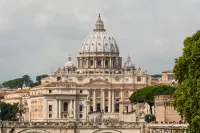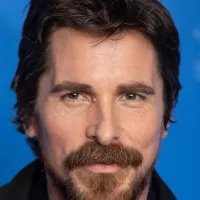Chile is a South American country, known as the southernmost country in the world bordering Peru, Bolivia, and Argentina. Its capital and largest city is Santiago. The country has a population of approximately 17.5 million people and controls several Pacific islands, including Easter Island. Chile also claims a large sector of Antarctica as the Chilean Antarctic Territory.
1902: Finalization of borders with Argentina
In 1902, Chile's current borders with Argentina were finalized through British arbitration.
1904: Treaty of Peace and Friendship with Bolivia
In 1904, Chile and Bolivia signed a Treaty of Peace and Friendship which clarified the border between both countries.
1924: Military coup led by General Luis Altamirano
In 1924, a military coup led by General Luis Altamirano set off a period of political instability.
1925: Carlos Ibáñez del Campo ruled as de facto dictator
In 1925, General Carlos Ibáñez del Campo briefly ruled as de facto dictator.
1925: Separation of church and state
In 1925, a new Constitution established the separation of church and state in Chile.
1927: Carlos Ibáñez del Campo ruled again as de facto dictator
Between 1927 and 1931, General Carlos Ibáñez del Campo ruled as de facto dictator again.
1931: Carlos Ibáñez del Campo ruled as de facto dictator
Between 1927 and 1931, General Carlos Ibáñez del Campo ruled as de facto dictator again.
1932: End of political instability period
In 1932, a period of political instability that started in 1924 came to an end.
1932: Restoration of constitutional rule
In 1932, constitutional rule was restored and a strong middle-class party, the Radicals, emerged.
1937: Anita Lizana Wins US Open
In 1937, Anita Lizana won the US Open, becoming the first woman from Latin America to win a Grand Slam tournament.
June 1945: Chile Founding Member of United Nations
On 26 June 1945, Chile participated as a founding member of the United Nations, signing the United Nations Charter in San Francisco, California.
1945: Gabriela Mistral Nobel Prize
In 1945, Gabriela Mistral became the first Latin American to receive a Nobel Prize in Literature.
1950: FIBA World Championship Bronze Medal
In 1950, Chile earned a bronze medal in the first men's FIBA World Championship.
1952: Ibáñez del Campo returned to office
In 1952, voters returned Ibáñez del Campo to office for another six years.
1953: FIBA World Championship for Women hosted by Chile
In 1953, Chile hosted the first FIBA World Championship for Women and finished the tournament with the silver medal.
1958: Jorge Alessandri succeeded Ibáñez del Campo
In 1958, Jorge Alessandri succeeded Ibáñez del Campo, bringing Chilean conservatism back into power democratically.
1959: FIBA World Championship Hosted by Chile
In 1959, Chile hosted the FIBA World Championship and won a second bronze medal.
1962: 1962 FIFA World Cup
Chile hosted the 1962 FIFA World Cup, where the national football team finished third.
1964: Eduardo Frei Montalva elected president
In 1964, Christian Democrat Eduardo Frei Montalva was elected president, initiating a period of major reform.
1967: Frei encountered increasing opposition
By 1967, Frei encountered increasing opposition from leftists and conservatives regarding his reforms.
1970: Salvador Allende elected president
In 1970, Senator Salvador Allende of the Socialist Party of Chile achieved a partial majority in a plurality of votes in a three-way contest.
1970: Kissinger's statement regarding Allende's election
Upon Allende's election in 1970, Kissinger stated "I don't see why we need to stand by and watch a country go Communist due to the irresponsibility of its own people".
1971: Pablo Neruda Nobel Prize
In 1971, Pablo Neruda received the Nobel Prize for Literature.
1972: Economic depression began
In 1972, an economic depression began, exacerbated by capital flight, plummeting private investment, and withdrawal of bank deposits in response to Allende's socialist program.
1972: Convention concerning the Protection of World Cultural and Natural Heritage
In 1972, the Convention concerning the Protection of World Cultural and Natural Heritage occurred.
May 1973: Supreme Court denounces Allende
On May 26, 1973, Chile's Supreme Court unanimously denounced Allende's disruption of the legality of the nation.
September 1973: Carabineros Incorporated into Defense Ministry
After the military coup in September 1973, the Chilean national police (Carabineros) were incorporated into the Defense Ministry.
September 1973: Military coup overthrows Allende
On September 11, 1973, a military coup overthrew Allende, who apparently committed suicide as the armed forces bombarded the presidential palace.
October 1973: Murders by the Caravan of Death
In October 1973, at least 72 people were murdered by the Caravan of Death.
1973: Chilean coup d'état
In 1973, the Chilean coup d'état overthrew Salvador Allende's democratically elected left-wing government with support from the United States.
1973: Military Coup and Political Isolation
With the military coup of 1973, Chile became politically isolated due to widespread human rights abuses.
1978: Administrative Division into Regions
In 1978 Chile was administratively divided into regions.
1979: Subdivision into Provinces and Communes
In 1979 Chile was subdivided into provinces and these into communes.
1979: Creation of National Health Fund (Fonasa)
In 1979, the National Health Fund (Fonasa) was created as the financial entity responsible for managing state health funds in Chile.
September 1980: New Constitution approved
On September 11, 1980, a new Constitution was approved by a controversial plebiscite, and General Pinochet became president of the republic for an eight-year term.
1980: Chile Ratifies UNESCO Convention
In 1980, Chile ratified the UNESCO Convention concerning the Protection of World Cultural and Natural Heritage of 1972.
1980: Chilean Constitution Made
In 1980, the Chilean Constitution was created with the consultancy of the Ortúzar Commission.
1980: Constitution Drafted
In 1980, the current Constitution of Chile was drafted by Jaime Guzmán and approved via a national plebiscite under Augusto Pinochet's dictatorship.
March 1981: Constitution Enters into Force
In March 1981, the Constitution of Chile, drafted by Jaime Guzmán in 1980, came into force under the military dictatorship of Augusto Pinochet.
1982: Economic collapse
In the late 1980s, largely as a result of events such as the 1982 economic collapse, the government gradually permitted greater freedom of assembly, speech, and association, to include trade union and political activity.
1983: Mass civil resistance
In the late 1980s, largely as a result of events such as mass civil resistance in 1983–88, the government gradually permitted greater freedom of assembly, speech, and association, to include trade union and political activity.
1984: Ancestry Study
In 1984, a study from the Revista de Pediatría de Chile determined an ancestry composition of 67.9% European and 32.1% Native American.
1987: Poverty Rate
In 1987, the percentage of Chileans with per capita household incomes below the poverty line was 45.1%, according to government surveys.
October 1988: Pinochet denied second term
On October 5, 1988, Pinochet was denied a second eight-year term as president (56% against 44%).
1988: Pinochet's Defeat in Plebiscite
After Pinochet's defeat in the 1988 plebiscite, the constitution was amended to ease provisions for future amendments to the Constitution.
1988: Referendum against Pinochet
In 1988, a referendum was held that denied Pinochet a second eight-year term as president.
1988: Privatization of the Telephone System
Privatization of Chile's telephone system began in 1988.
December 1989: Chileans elected a new president
On December 14, 1989, Chileans elected a new president and the majority of members of a bicameral congress.
1989: Binominal System Used
From 1989, the binominal system was used for parliamentary elections, which promoted the establishment of two majority political blocs at the expense of the exclusion of non-majority political groups.
1989: Adoption of ILO Convention 169
In 1989, the Indigenous and Tribal Peoples Convention, also known as the International Labour Organization (ILO) Convention 169, was adopted.
1990: End of Pinochet's Regime
In 1990, the right-wing military dictatorship under Augusto Pinochet ended following a referendum in 1988.
1990: Start of Aylwin's presidency
President Aylwin served from 1990 to 1994, in what was considered a transition period.
1990: Decreasing Population Growth Rate
Since 1990, Chile's rate of population growth has been decreasing due to a declining birth rate.
1990: Return to Democracy
Since its return to democracy in 1990, Chile has been an active participant in the international political arena.
1992: Increase in foreign-born population
According to the 2002 national census, since 1992, Chile's foreign-born population increased by 75%.
December 1993: Eduardo Frei Ruiz-Tagle led coalition to victory
In December 1993, Christian Democrat Eduardo Frei Ruiz-Tagle led the Concertación coalition to victory with an absolute majority of votes (58%).
1994: Biological Study on Chilean Composition
In 1994, a biological study determined that the Chilean genetic composition was 64% European and 35% Amerindian.
1994: End of Aylwin's presidency
President Aylwin served from 1990 to 1994, in what was considered a transition period.
1995: Rapa Nui National Park Listed as World Heritage Site
In 1995, Rapa Nui National Park was declared a World Heritage Site by UNESCO.
1995: Fungal Species Endemic to Chile
In 1995, a first effort has been made to estimate the number of fungal species endemic to Chile, and 1995 species have been tentatively identified as possible endemics of the country.
1998: Marcelo Ríos Number One
In 1998, Marcelo Ríos became the first Latin American man to reach the number one spot in the ATP singles rankings.
1999: Moderate Economic Downturn
In 1999, Chile began to experience a moderate economic downturn.
1999: Cultural Heritage Day Established
In 1999, Cultural Heritage Day was established as an official national event celebrated in May every year to honor and commemorate Chile's cultural heritage.
1999: Law on Religion Prohibits Discrimination
In 1999, a law on religion was enacted in Chile, prohibiting religious discrimination.
2000: Bronze Medal at Summer Olympics
Chile's national football team won a bronze medal at the 2000 Summer Olympics.
2000: Ricardo Lagos won the presidency
In 2000, Ricardo Lagos won the presidency in an unprecedented runoff election.
2000: Churches of Chiloé Listed as World Heritage Site
In 2000, the Churches of Chiloé were declared a World Heritage Site by UNESCO.
2002: National Poll on Indigenous Blood
A 2002 national poll revealed that a majority of Chileans believed they possessed some (43.4%) or much (8.3%) "indigenous blood".
2002: Religious Adherence in Chile
According to the 2002 census, 70% of the Chilean population over 15 years of age claimed to adhere to the Roman Catholic church. As of 2012, this number decreased to 66.6%.
2002: Population in urban areas
According to the 2002 census, the largest urban agglomerations in Chile were Greater Santiago with 5.6 million people, Greater Concepción with 861,000, and Greater Valparaíso with 824,000.
2002: Foreign-born population increase
According to the 2002 national census, Chile's foreign-born population increased by 75% since 1992.
2002: Ethnic Composition of Chile
According to the Encyclopædia Britannica, as of 2002, only 22% of Chileans were white and 72% were mestizo.
2002: Defense Ministerial of the Americas Hosted
In 2002, Chile hosted the Defense Ministerial of the Americas.
2003: FTA with the United States Signed
In 2003, Chile signed a Free Trade Agreement (FTA) with the United States.
2003: World Team Cup Victory
In 2003, Chile's national tennis team won the World Team Cup clay tournament.
2003: Economic Recovery
In 2003, the Chilean economy began to show clear signs of recovery, achieving 4.0% GDP growth.
2003: Valparaíso Listed as World Heritage Site
In 2003, the historical district of the port city of Valparaíso was declared a World Heritage Site by UNESCO.
January 2004: FTA with the United States Implemented
In January 2004, the Free Trade Agreement (FTA) between Chile and the United States was implemented.
2004: Gold and Bronze at Summer Olympics
At the 2004 Summer Olympics Chile captured gold and bronze in men's singles and gold in men's doubles (Nicolás Massú obtained two gold medals).
2004: APEC Summit Hosted
In 2004, Chile hosted the APEC summit and related meetings.
2004: World Team Cup Victory
In 2004, Chile's national tennis team won the World Team Cup clay tournament.
2004: GDP Growth
The Chilean economy finished 2004 with growth of 6%.
2004: Opening of the Santiago urban highways network
The Santiago urban highways network opened between 2004 and 2006.
January 2005: Chile Completes UN Security Council Term
In January 2005, Chile completed a two-year non-permanent position on the UN Security Council.
April 2005: Community of Democracies Ministerial Hosted
In April 2005, Chile hosted the Community of Democracies ministerial.
May 2005: Jose Miguel Insulza Elected Secretary General of OAS
In May 2005, Jose Miguel Insulza, a Chilean national, was elected Secretary General of the Organization of American States.
June 2005: Overhaul of Criminal Justice System Completed
In June 2005, Chile completed a nationwide overhaul of its criminal justice system, replacing inquisitorial proceedings with an adversarial system.
September 2005: Constitutional Amendments Signed into Law
In September 2005, President Ricardo Lagos signed into law several constitutional amendments passed by Congress, including eliminating appointed senators and reducing the presidential term.
November 2005: Tourism Campaign Launched
In November 2005, the Chilean government launched a campaign under the brand "Chile: All Ways Surprising" to promote the country internationally for business and tourism.
2005: Humberstone and Santa Laura Saltpeter Works Listed as World Heritage Site
In 2005, Humberstone and Santa Laura Saltpeter Works were declared a World Heritage Site by UNESCO.
2005: Canonization of Alberto Hurtado
In 2005, Pope Benedict XVI canonized Alberto Hurtado, making him the country's second native Roman Catholic saint after Teresa de los Andes.
2005: Exports to Asia Increased
In 2005, exports to Asia from Chile increased to US$15.2 billion.
2005: Tourism Growth
In 2005, tourism in Chile grew by 13.6%, generating more than 4.5 billion dollars, with 1.5 billion attributed to foreign tourists.
January 2006: Michelle Bachelet Jeria elected president
In January 2006, Chileans elected their first female president, Michelle Bachelet Jeria, of the Socialist Party.
2006: Public Debt
At the end of 2006, Chile's public debt was only 3.9% of GDP.
2006: Gold production
Between 2006 and 2017, the country produced annual amounts ranging from 35.9 tonnes in 2017 to 51.3 tonnes in 2013, where the gold production in 2015 is 43 metric tonnes.
2006: GDP Decreased Growth
In 2006 Real GDP growth fell back to 4%.
2006: Highest Nominal GDP per Capita in Latin America
In 2006, Chile became the country with the highest nominal GDP per capita in Latin America.
2006: Chile-China Trade Reaches US$8.8 Billion
In 2006, Chile's total trade with China reached US$8.8 billion, which represented approximately 66% of its trade relationship with Asia.
2006: Sewell Mining City Listed as World Heritage Site
In 2006, the mining city of Sewell was declared a World Heritage Site by UNESCO.
2006: Opening of the Santiago urban highways network
The Santiago urban highways network opened between 2004 and 2006.
March 2007: Air Force Takes Delivery of F-16s
In March 2007, the Chilean Air Force took delivery of the final two of ten F-16s purchased from the U.S., as well as a number of reconditioned Block 15 F-16s from the Netherlands.
November 2007: Ibero-American Summit Hosted
In November 2007, Chile hosted the Ibero-American Summit.
2007: Agriculture and Allied Sectors Contribution to GDP
As of 2007, agriculture and allied sectors like forestry, logging, and fishing accounted for only 4.9% of Chile's GDP and employed 13.6% of the country's labor force.
2007: GDP Expanded
In 2007 GDP expanded by 5%.
2007: Creation of Arica and Parinacota and Los Ríos regions
In 2007, two new regions were created: Arica and Parinacota (XV) and Los Ríos (XIV).
2008: Financial Crisis
Faced with the 2008 financial crisis, the government announced an economic stimulus plan to spur employment and growth.
2008: Chile Chair of IAEA Board of Governors
In 2007-2008, Chile's ambassador to the IAEA, Milenko E. Skoknic, was the chair of the International Atomic Energy Agency (IAEA) Board of Governors.
2008: Ratification of ILO Convention 169
In 2008, Chile ratified the Indigenous and Tribal Peoples Convention, 1989, also known as the International Labour Organization (ILO) Convention 169.
2008: Silver Medal in Beijing Olympics
In 2008, Fernando González won a silver medal in singles at the Summer Olympics in Beijing.
November 2009: Supreme Court Decision on Aymara Water Rights
In November 2009, a Chilean court decision, considered a landmark ruling on indigenous rights, made use of the ILO Convention 169.
2009: Insulza Re-elected as Secretary General of OAS
In 2009, Jose Miguel Insulza was re-elected as Secretary General of the Organization of American States.
2009: Economic Stimulus Plan
In 2009, the government implemented an economic stimulus plan to spur employment and growth, aiming for an expansion of between 2% and 3% of GDP despite the Great Recession.
2009: Poverty Rate
In 2009, the percentage of Chileans with per capita household incomes below the poverty line fell to 11.5%, according to government surveys.
2009: Collaboration with the United States Department of Energy
Since 2009, Chile has collaborated with the United States Department of Energy to encourage the use of renewable energy sources, such as wind and solar energy.
2009: Dakar Rally Held in Chile
Since 2009, the Dakar Rally off-road automobile race has been held in Chile and Argentina.
January 2010: Sebastián Piñera elected president
In January 2010, Chileans elected Sebastián Piñera as the first rightist President in 20 years.
February 2010: Chile earthquake
On 27 February 2010, Chile was struck by an 8.8 Mw earthquake. More than 500 people died (most from the ensuing tsunami) and over a million people lost their homes.
May 2010: Chile Joins OECD
In May 2010, Chile became the first South American country to join the OECD.
October 2010: Rescue of 33 Trapped Miners
On 13 October 2010, all 33 miners trapped in the San José mine were successfully rescued over a period of almost 24 hours. This event was broadcasted live around the world.
2010: End of center-left coalition rule
In 2010, the center-left coalition's rule, which began after the end of the Pinochet regime, came to an end.
2011: Chile recognized additional victims of Pinochet's regime
In 2011, Chile recognized an additional 9,800 victims, bringing the total number killed, tortured or imprisoned for political reasons to 40,018 during Pinochet's regime.
2011: Re-election to UN Human Rights Council
In 2011, Chile was re-elected as a member of the UN Human Rights Council for a three-year term.
2011: Universidad de Chile Wins Copa Sudamericana
In 2011, Universidad de Chile was the last international champion, winning the Copa Sudamericana.
2011: Arturo Merino Benítez International Airport Traffic
In 2011, the Arturo Merino Benítez International Airport (Santiago) had a traffic of 12,105,524 passengers.
2011: Latinobarómetro Survey on Racial Self-Identification
The 2011 Latinobarómetro survey asked respondents in Chile what race they considered themselves to belong to, with most answering "White" (59%).
November 2012: Government Welfare Programs Beneficiaries
As of November 2012, about 11.1 million people (64% of the population) benefit from government welfare programs, via the "Social Protection Card".
2012: Internet Penetration Rate
According to a 2012 database of the International Telecommunication Union (ITU), 61.42% of the Chilean population uses the internet, making Chile the country with the highest internet penetration in South America.
2012: Religious Adherence in Chile
As of 2012, 66.6% of Chilean population over 15 years of age claimed to adhere to the Roman Catholic church, a decrease from the 70% reported in the 2002 census. In the same census of 2012, 17% of Chileans reported adherence to an Evangelical church.
2012: Net Creditor
At the end of 2012, the Chilean central government was a net creditor with a net asset position of 7% of GDP.
2012: Telecommunications Statistics
In 2012, Chile had 3.276 million main telephone lines in use and 24.13 million mobile cellular telephone subscribers.
2012: First Paralympic Games Medal
In 2012, Chile won its first Paralympic Games medal, a gold in Athletics.
July 2013: Chile Considered a High-Income Economy
Since July 2013, Chile is considered by the World Bank as a "high-income economy".
2013: Sebastián Piñera did not stand for re-election
Due to term limits, Sebastián Piñera did not stand for re-election in 2013.
2013: Slowed GDP Growth
Growth slowed to 4.1% in the first quarter of 2013.
2013: Gold Production Amount
In 2013, Chile produced 51.3 tonnes of gold.
2013: Elected to UN Security Council
In 2013, Chile was elected to one of five non-permanent seats on the UN Security Council.
2013: Current Account Deficit
In the first quarter of 2013, Chile's current account deficit was 4%, financed mostly by foreign direct investment.
2013: Binominal System Used
Until 2013, the binominal system was used for parliamentary elections, which promoted the establishment of two majority political blocs at the expense of the exclusion of non-majority political groups.
March 2014: Michelle Bachelet returned to office
In March 2014 Michelle Bachelet returned to office as president.
2014: Electricity Consumption
In 2014, Chile's electricity consumption was 68.90 TWh.
2015: Gold Production
In 2015, Chile produced 43 metric tonnes of gold.
2015: Copa América Title
In 2015, Chile's national football team won one Copa América titles.
2015: Religion Statistics
In 2015, Christianity remained the major religion in Chile at 68%, with 55% belonging to the Roman Catholic church, 13% to Evangelical churches, and 7% adhering to other religions. Agnostics and atheists were estimated at 25% of the population.
2015: Genetic Composition Study
In 2015, a genetic study established Chile's genetic composition as 57% European, 38% Native American, and 2.5% African.
2015: Moderate Proportional Electoral System Approved
In 2015, the opponents of the binominal system approved a moderate proportional electoral system that has been in force since 2017 parliamentary elections, allowing the entry of new parties and coalitions.
2016: Copa América Title
In 2016, Chile's national football team won one Copa América titles.
2016: Baháʼí Temple Completion
In 2016, the Baháʼí mother temple, or continental House of Worship, for Latin America, was completed in Chile. It serves as a space for people of all religions and backgrounds to gather, meditate, reflect, and worship.
December 2017: Sebastián Piñera re-elected president
In December 2017, Sebastián Piñera was re-elected as the President of Chile.
2017: Population Census
Chile's 2017 census reported a population of 17,574,003.
2017: UN Treaty on the Prohibition of Nuclear Weapons
In 2017, Chile signed the UN treaty on the Prohibition of Nuclear Weapons.
2017: Gold Production Amount
In 2017, Chile's gold production amounted to 35.9 tonnes.
2017: Cyber Security Strategy Launched
In 2017, the government of Chile launched its first cyber security strategy, receiving technical support from the Organization of American States (OAS) Cyber Security Program of the Inter-American Committee against Terrorism (CICTE).
2017: Moderate Proportional Electoral System in Force
Since 2017, a moderate proportional electoral system has been in force, allowing the entry of new parties and coalitions.
2018: Forest Landscape Integrity Index
In 2018, Chile had a Forest Landscape Integrity Index mean score of 7.37/10, ranking it 43rd globally out of 172 countries.
2018: Wine Production Ranking
In 2018, Chile was in 6th place among the world's largest wine producers.
2018: Sebastián Piñera succeeded Bachelet
In 2018, Sebastián Piñera succeeded Bachelet again as the President of Chile.
2018: Creation of Ñuble region
In 2018, a third region was created: Ñuble (XVI).
2019: Nationwide Protests Begin
In 2019, Chile experienced the start of a series of nationwide protests triggered by a rise in the Santiago Metro's subway fare, increased cost of living, privatization, and inequality.
2019: Global Salmon Supply
In 2019, Chile was responsible for 26% of the global salmon supply, making it the world's second-largest producer after Norway.
2019: World's Largest Producer
In 2019, Chile was the world's largest producer of copper, iodine, and rhenium.
2019: Latin American Immigrants in Chile
In 2019, Latin American immigrants made up 8% of Chile's total population, without counting descendants.
April 2020: Referendum Postponement
In April 2020, the national referendum regarding the creation of a new Constitution was postponed due to the COVID-19 pandemic.
October 2020: National Referendum Results
On 25 October 2020, Chileans voted 78.28 percent in favor of a new constitution, while 21.72 percent rejected the change; voter turnout was 51 percent.
2020: Highway Network
In 2020, Chile had 85,984 km of highways, with 21,289 km paved, and 3,347 km of duplicated highways, the second largest network in South America after Brazil.
2020: Total Energy Supply
In 2020, Chile's total energy supply (TES) was 23.0GJ per capita, dominated by fossil fuels (73.4%).
May 2021: Constitutional Convention Election
Between 15 and 16 May 2021, an election for the members of the Constitutional Convention was held in Chile, resulting in a significant rearrangement of the political system.
November 2021: Growth of Latin American Immigrants
In November 2021, Chile saw a rapid increase in the number of immigrants entering the country from other Latin American countries. The number of immigrants had tripled in the past three years to 1.5 million due to humanitarian crises in Haiti and Venezuela.
November 2021: Congressional Elections
On 21 November 2021, the last congressional elections were held, concurrently with the presidential election.
December 2021: Gabriel Boric Wins Presidential Election
On 19 December 2021, Gabriel Boric, a leftist candidate, won Chile's presidential election to become the country's youngest leader.
2021: Installed Renewable Electricity
In 2021, Chile had 6,807 MW in hydropower, 3,137 MW in wind power, 4,468 MW in solar, and 375 MW in biomass.
March 2022: Boric Sworn in as President
On 11 March 2022, Gabriel Boric was sworn in as president, succeeding Sebastian Piñera. His cabinet was notable for being majority women.
September 2022: Constitutional Referendum Rejected
On 4 September 2022, voters rejected the new constitution proposal in the constitutional referendum that was put forward by the left-leaning Constitutional Convention.
2022: Continued Protests
In 2022, Chile continued to experience nationwide protests which began in 2019, addressing issues such as the rising cost of living and inequality.
2022: Unemployment Rate
In 2022, the unemployment rate in Chile was 7.8%, according to The World Bank.
December 2023: Second New Constitution Proposal Rejected
On 17 December 2023, voters rejected a second new constitution proposal in a new constitutional referendum, written by the conservative-led Constitutional Council.
2023: Greenhouse Gas Emissions
In 2023, Chile emitted 107.99 million tonnes of greenhouse gases, equivalent to around 0.2% of the global total.
2023: Silver Production Ranking
In 2023, Chile was the fourth largest silver producer globally.
2024: Global Innovation Index Ranking
Chile was ranked 1st in the Global Innovation Index in 2024.
2024: Global Hunger Index
In the 2024 Global Hunger Index, Chile is one of 22 countries with a GHI score of less than 5.
2050: Projected Population
By 2050, Chile's population is expected to reach approximately 20.2 million people.
2050: Commitment to Net Zero
Chile has committed to achieving net zero emissions by 2050.
Mentioned in this timeline
The United States of America is a federal republic located...
California is a U S state on the Pacific Coast...
Venezuela officially the Bolivarian Republic of Venezuela is located on...
Colombia officially the Republic of Colombia is a country located...

San Francisco is a major commercial financial and cultural hub...

The Catholic Church the largest Christian church globally with over...
Trending

15 minutes ago Rachel Weisz Explores Steamy Fantasies in Netflix's 'Vladimir' Series Featuring Leo Woodall.

16 minutes ago Zack Snyder reveals why Christian Bale's Batman didn't appear in BvS and DCEU.
16 minutes ago Kevin Warsh's potential impact on Federal Reserve policies and rate cut outlook.
16 minutes ago Yavapai College Board to meet in person; Midland College approves drilling agreement.

16 minutes ago Vodafone and Amazon Leo Partner to Expand Mobile Coverage in Europe and Africa

17 minutes ago Luke Grimes discusses Monica Dutton's fate in 'Marshals' and his role as Kayce.
Popular

Jesse Jackson is an American civil rights activist politician and...

Hillary Diane Rodham Clinton is a prominent American politician lawyer...

Jim Carrey is a Canadian-American actor and comedian celebrated for...

XXXTentacion born Jahseh Dwayne Ricardo Onfroy was a controversial yet...

Michael Joseph Jackson the King of Pop was a highly...

Bill Clinton served as the nd U S President from...